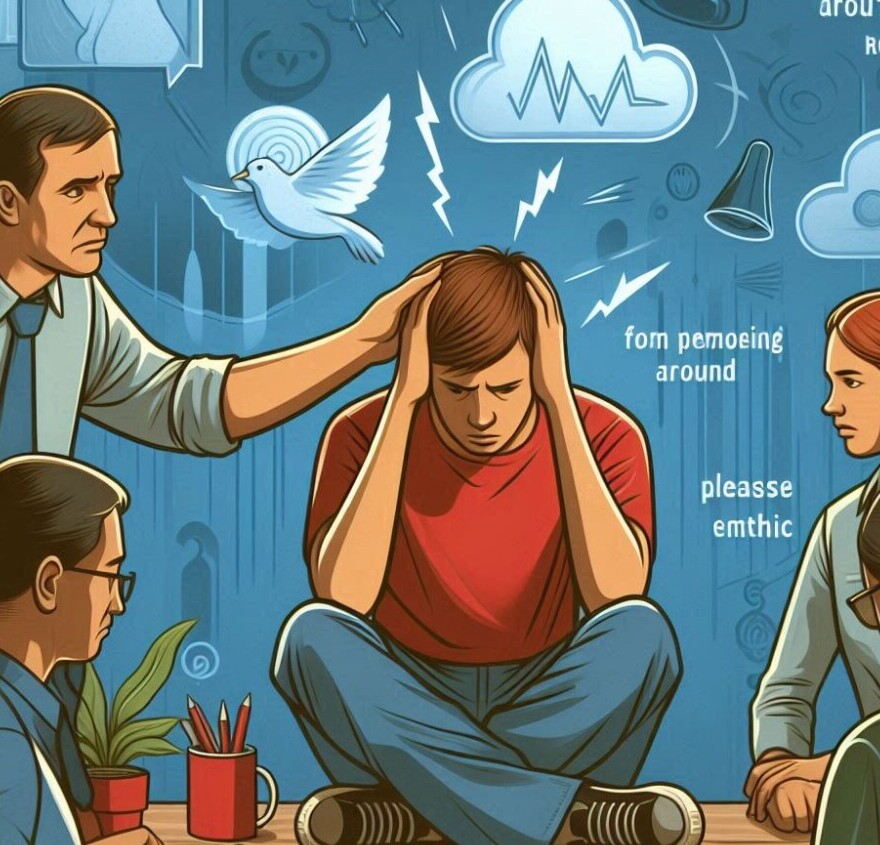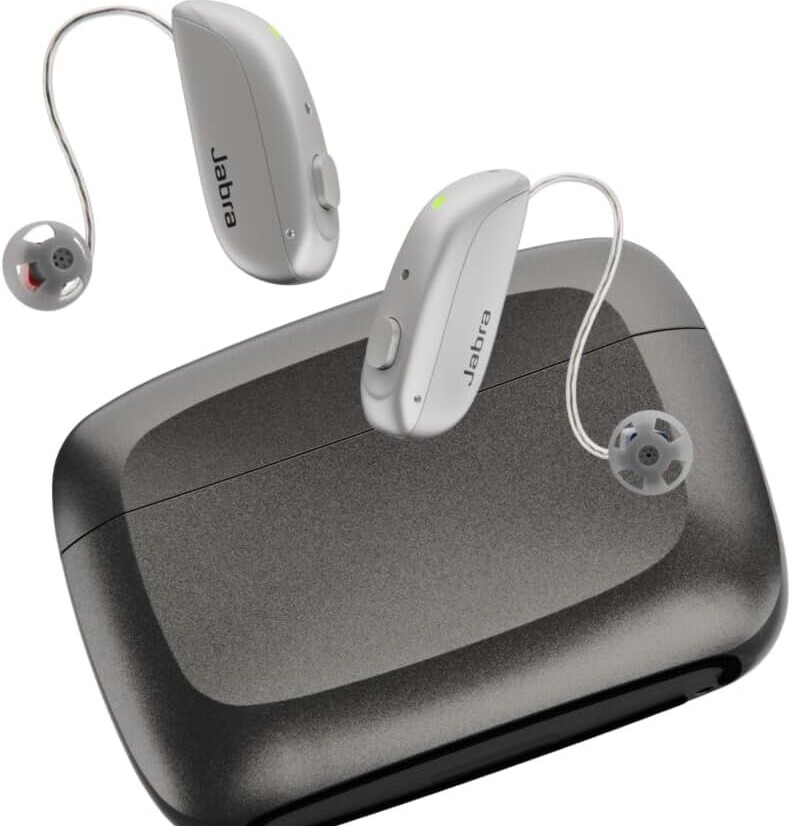Tinnitus, that never-ending ringing or buzzing in your ears, feels like an uninvited guest.
Hard to ignore and even harder to live with, it hovers around you like a persistent shadow.
It can be high-pitched or low, sometimes even fluctuating in volume, making everyday life seem like an uphill battle.
Early on, I grappled with my tinnitus—a buzzing sound that refused to let go. It barged into my quiet moments and kicked up anxiety, causing me to stress over whether I’d ever enjoy a day of peace again.
The constant noise became more than just an irritation—it morphed into a full-blown psychological stressor.
Tinnitus isn’t just about the sound; it’s about the mind trying to cope with that sound. This condition often links arms with anxiety, with the psychological impact sometimes being even more debilitating than the noise itself. It’s like your brain gets stuck in a feedback loop, unable to filter out the clatter.
For anyone navigating the same noisy waters, understanding that there’s a connection between tinnitus and anxiety is crucial. There’s a path through the chaos, and while it might take time to find what’s right for you, there are ways to manage both and regain control.
For more on my battle and the tools I’ve found along my journey, read my story here.
Understanding Tinnitus: The Psychological Toll
Tinnitus might seem like just a problem with your ears, but it runs deeper, affecting how you think and feel.
Imagine your brain being overloaded with sounds that it can’t escape from, no matter how much you’d like to tune out.
Typically, tinnitus sets in from noise exposure, ear infections, or conditions like age-related hearing loss. The sounds vary greatly—it’s a mixture of noises, from buzzing to whooshing and more. Each person experiences it uniquely, which adds another layer of complexity.

The emotional toll is significant, as these sounds can be more than simple nuisances.
They often bring emotional baggage that your brain has to manage, turning your thought processes into a hot mess.
This is because tinnitus doesn’t just end with hearing; it takes a toll on your mood, sometimes even leading to emotional distress and irritability.
Drawing on research from the American Tinnitus Association, tinnitus has a real knack for intertwining with mental health issues, primarily because it’s hard to simply tune out these intrusive sounds.
This constant auditory assault can amp up stress levels, further affecting your mental state.
Being aware of how tinnitus affects both the auditory and emotional systems of your brain helps in recognizing the signs and starting coping strategies early on.
Understanding is power, especially when it means equipping yourself to handle the psychological blow without letting it take over your life.
Recommended Reading: Treble HealthTinnitus Sleep Headband Review- Is It Worth It?
Tinnitus and Anxiety: An Unwanted Duo
Living with tinnitus feels like being caught in a perpetual storm, where silence is a luxury.
But what’s tricky is not just the noise itself, but how relentless it makes you feel inside, sparking anxiety even in the strongest of minds.
The cycle often starts with hyper-vigilance, where you’re constantly on edge, tuned into tinnitus like it’s the only sound in the room.
Whether it’s a quiet moment in a meeting or trying to fall asleep at night, this focus can fuel anxiety, shifting your brain into overdrive.
Sleep, often the first casualty, becomes a challenge.
When your mind can’t escape the noise even during downtime, rest becomes fragmented or elusive. A lack of restful sleep only compounds the anxiety, creating a vicious cycle that’s tough to break.
Over time, continuous stress from this loop isn’t just annoying—it can lead to anxiety disorders. The body isn’t built to sustain long periods of stress without some wear and tear on your mental health.
Checking out research like the NIH’s dive into ‘Tinnitus and Emotional Well-Being’ shows how significant this relationship is.
Awareness means you can start taking steps to disrupt the cycle, maybe through mindfulness exercises, better sleep hygiene, or even therapy geared toward managing both tinnitus and its emotional fallout.
Regaining control might mean experimenting with different strategies to see what helps reduce that focus on tinnitus and ease the accompanying anxiety. Whether it’s through lifestyle changes or seeking professional guidance, knowing you have options is a vital step forward.
Common Factors Behind Tinnitus and Anxiety
It’s interesting how stress always seems to find a way to latch itself onto other issues, doesn’t it?
Stress is often the silent partner in crime for both tinnitus and anxiety, weaving a web that makes these conditions harder to untangle.
High-stress levels can trigger tinnitus or make it much worse, which then circles right back to feeding anxiety.
Noise-induced hearing loss is another major player, blurring the lines between these two conditions. When hearing is compromised, the brain sometimes fills in the silence with phantom sounds, which increases tension and stress—not a great combo for peace of mind.
Underlying medical conditions don’t miss a beat either.

Take Ménière’s disease, for example. This disorder affects the inner ear, mixing symptoms like vertigo and tinnitus with increased anxiety levels. Then there’s TMJ dysfunction, where the pain and discomfort associated with jaw issues can exacerbate both tinnitus and anxiety.
Tackling these underlying causes isn’t about snapping your fingers for instant relief, but rather understanding what’s contributing to your tinnitus and anxiety.
With insights from resources like the Mayo Clinic’s Tinnitus Overview, it becomes easier to figure out what could be stoking the fire.
Getting to the root of these triggers might mean consulting with doctors or audiologists who can offer tests and treatments tailored to your unique situation.
Whether it’s stress management techniques or treating a specific condition, identifying the shared causes can be the first step in crafting effective solutions.
Quick Anti-Anxiety Fixes for Tinnitus Sufferers
When tinnitus tries to be the boss of your life, finding quick fixes can feel like discovering hidden treasures.
Mindfulness exercises are a simple yet powerful way to shift focus. Apps like Calm or Headspace have accessible meditations that you can launch any time you feel overwhelmed.
Deep breathing exercises, the kind you can do anywhere—be it at work or while waiting for your coffee—can really help in grounding you.
These moments of mindfulness can interrupt the spiral of anxiety and give your brain a much-needed calm.
Progressive Muscle Relaxation, or PMR, doesn’t require any fancy equipment either.
It involves tensing and then releasing each muscle group in your body. This technique can distract from the incessant ringing and help refocus your attention to something more tangible.
Tinnitus maskers are another cool-aid in the toolkit. These gadgets, or even apps on your phone, emit sounds that can camouflage the tinnitus to some extent, offering a soothing alternative to the buzz that’s dominating your thoughts.
Hearing Aids: Dual Weapon Against Tinnitus and Anxiety
Hearing aids can feel like magic when you’re living in a world dominated by tinnitus noises. These little devices do more than just amplify sound; they create a soundscape that brings relief, and sometimes, peace.
By making ambient sounds more audible, hearing aids can help mask the noise of tinnitus, allowing your brain to pay more attention to real sounds instead of the phantom ones. This simple shift in focus can reduce the anxiety often tied to the unpredictability of tinnitus.
I remember trying out hearing aids for the first time and feeling the world open up. Suddenly, I could hear conversations clearer, and the endless ringing became less of a burden. It’s like rediscovering life without that constant intrusion.
If you are considering hearing aids, take a look at devices like Jabra Enhance and Vivtone Rechargeable.
They’re designed not only to assist with hearing loss but also to tackle the irritating sounds of tinnitus by enhancing natural sounds around you.
Exploring these options might make a huge difference in taming both tinnitus and the tension it creates. Deciding on the right device involves knowing what you need in your daily life and sometimes, a bit of trial and error—but the payoff is worth it.
Comprehensive Management: Tackling Tinnitus and Anxiety Together
Managing tinnitus doesn’t stop at quick fixes—sometimes, a more structured approach is needed, especially when anxiety starts to impact daily living.
Cognitive Behavioral Therapy (CBT) is a proven method, known to help reframe thoughts and reactions regarding tinnitus, bringing a greater sense of control and reducing anxiety.
Sound therapy can also work wonders by training your brain to focus on external sounds rather than the internal noise of tinnitus.
It’s about reconditioning the way you perceive and react to the constant buzzing, gradually reducing its hold over you.
Lifestyle adjustments can’t be overlooked either.
Regular exercise can be a game-changer, offering stress relief that spills over into better mental health. A balanced diet without excessive caffeine or alcohol helps keep both anxiety and tinnitus flare-ups at bay.
Resources like Psychology Today offer insights into how these therapies can be used effectively. It’s all about integrating professional treatments with personal lifestyle tweaks to create a holistic plan that fits your unique situation.
The key is to be proactive and willing to try a mix of strategies until you find what clicks.
Remember, the goal is sustainable management of both tinnitus and the anxiety it breeds—not a quick patch but a lasting solution.
Seeking Professional Help: Key Indicators and Advice
Recognizing when tinnitus and anxiety start to take a heavy toll on daily life is crucial.
It might be time to reach out for professional help if you notice that your sleep patterns are severely disrupted or you’re feeling constantly overwhelmed by anxiety linked to tinnitus.
Signs to watch out for include persistent difficulty concentrating, a noticeable drop in your ability to enjoy usual activities, or when the ringing and anxiety become relentless, making it hard to cope even with normal routines. These are cues your body and mind are giving you that it’s time to seek support.
Audiologists are well-equipped to assess your hearing and provide options that can alleviate tinnitus symptoms. They can recommend hearing aids, sound therapy, or medical interventions tailored specifically to your condition.
On the mental health front, therapists offer counseling, Cognitive Behavioral Therapy (CBT), and other interventions that can ease anxiety, helping you develop coping mechanisms and strategies.
Harvard Health Publishing emphasizes the importance of addressing both tinnitus and mental health concurrently. When they’re handled together, the improvements in overall well-being can be significant.
Encouraging visits to healthcare professionals isn’t just about treating symptoms; it’s about empowering you with the information and tools necessary for mastering your tinnitus and anxiety challenges.
Conclusion: Harmonizing Sound and Mind
Living with tinnitus and anxiety is like trying to find harmony in a chaotic symphony.
It’s about addressing both sound and peace of mind for a better quality of life.
Understanding how these conditions feed off each other is step one. Once you’ve got that down, you can focus on solutions that tackle both.
Exploring options like OTC hearing aids can be a practical move toward managing tinnitus.
Connecting the dots between what you’ve learned and the changes you’re implementing is empowering.
Your journey is unique, and finding that personal balance is the ultimate goal.
To keep learning and updating your toolkit, feel free to check out my other article on Tinnitus starting with learning whether Tinnitus can also aggravate sleep apnea.
Every bit of knowledge can be a step toward a quieter, more peaceful mind.
How long has your Tinnitus bothered you? What has helped or not helped your condition?
Feel free to share your story below.
Looking forward to hearing from you.
Regards and Take Care
Roopesh

